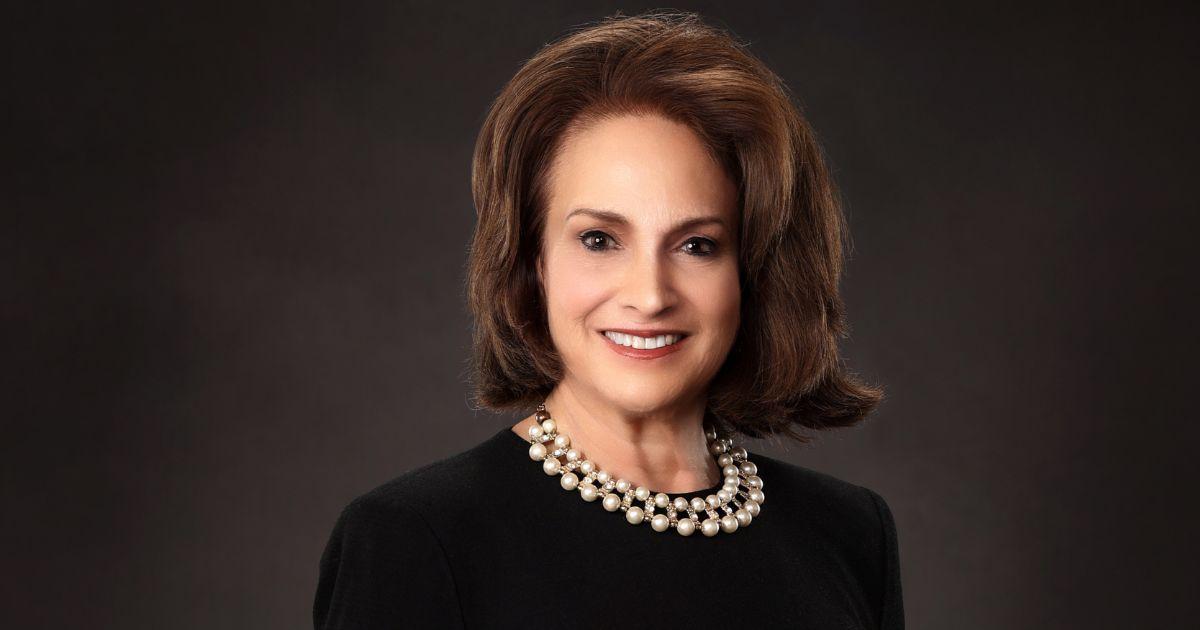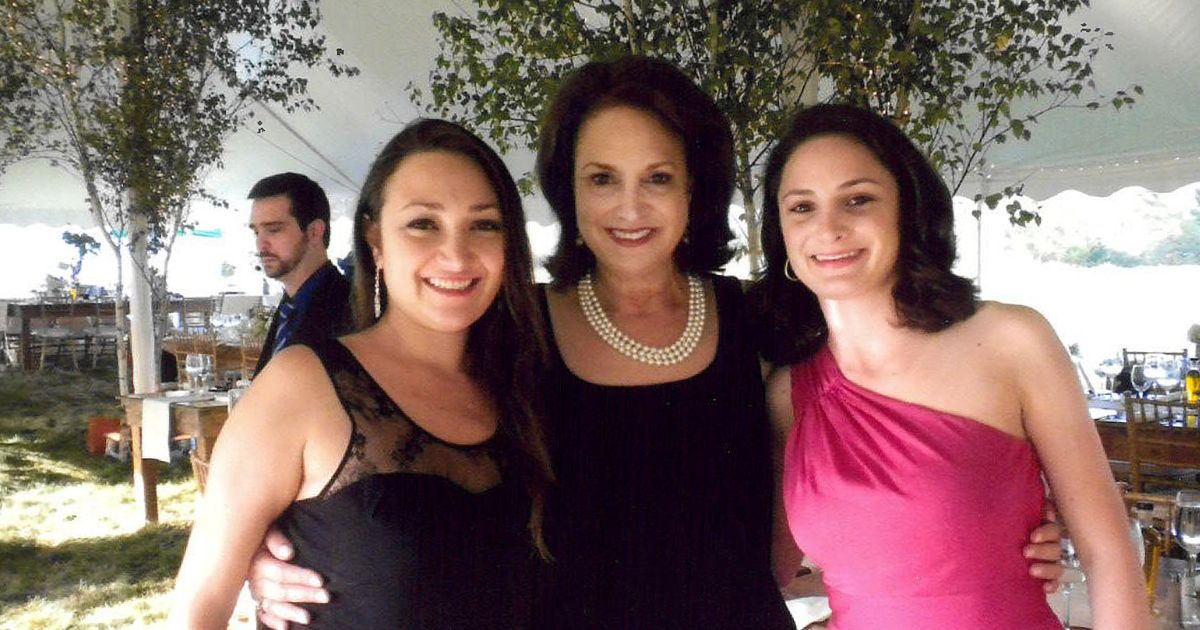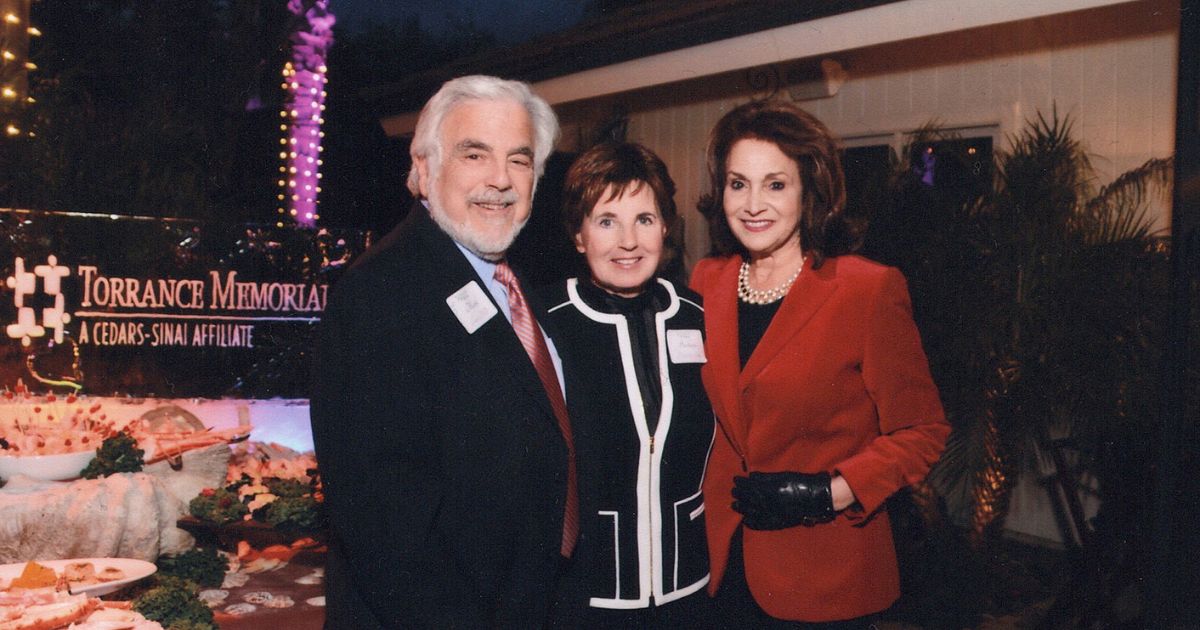
Written by Diane Krieger
Like an intriguing novel, Judith Gordon Gassner's life can be divided into three parts: Part 1 – symphonic movements. Part 2 – warm scenes of domesticity. Part 3 – hospital doyenne and super friend.
People compare the beloved Torrance Memorial fundraiser to Jacqueline Kennedy Onassis. A woman of refinement. Charming, quick-witted and utterly unbreakable.
Like Jackie, as a young woman Judy moved in sophisticated circles, rubbing elbows with famous artists and maestros. Later, having found her prince charming, she—like Jackie—turned her attention to building a family.
Tragically, Judy was widowed in her prime, left with two young daughters to raise alone. And five years later, not unlike Jackie, she came roaring back to start a new adventure.
In 24 years, Judy has raised enormous sums of money for the Torrance Memorial Foundation. As senior director of development and principal gifts, her most recent achievement is a $21.8 million donation from philanthropist Mary Tu.
April 28 will be Judy's last day with the hospital. At 74, she's stepping into well-earned retirement. The hospital's centennial celebration will be her final foundation project.
"It will be very difficult to fill the gap Judy leaves," says foundation executive vice president Laura Schenasi, who hired her in 2001, when Judy had zero fundraising experience but possessed unique people skills. "The No. 1 most important thing in fundraising is relationship-building, and Judy gets five gold stars in that."
A Strong Foundation
Judy was raised in Rockland, Maine, a town of 8,000 people. Her grandfather, a Russian-Jewish immigrant named Isidor Gordon, was a respected town elder and one of the founders of Rockland's only synagogue, Adas Yoshuron.
Her father, Edward Gordon, was a businessman, while her mom, Charlotte, stayed home to raise their five kids. Judy and her twin, Joan, are the second and third of four sisters, the others being Suzan and Gail. Their brother, Peter, is the youngest sibling.
Judy loved growing up in a New England town steeped in culture. Rockland, touted as the "lobster capital of the world," is home to the world-class Farnsworth Art Museum. It wasn't uncommon to find painter Andrew Wyeth and sculptor Louise Nevelson strolling about town on Main Street.
Judy worshipped the arts—ballet, theater, music, especially jazz—though she wasn't particularly gifted. "I had a lot of lessons, but even I knew I was pretty mediocre at everything," she says, with beguiling candor.
She studied art administration and art history at Vassar College and went to work in the subscriptions department of the Boston Symphony Orchestra (BSO). From the basement office, she could hear maestros Seiji Ozawa and Arthur Fielder in rehearsals.
Within six months, Judy was tapped as assistant to a young executive named Peter Gelb, who would go on to helm the Metropolitan Opera. As she rose in the ranks, Judy would escort the BSO to its summer home at Tanglewood and on road trips to venues like the Kennedy Center and Carnegie Hall. Behind the scenes, she took care of celebrity maestros like Leonard Bernstein, Aaron Copeland and John Williams.
It was on a European concert tour that Judy met the love of her life, a young endocrinologist from the Bronx named Conrad Gassner. After a whirlwind romance in Rome, they were married in 1983. Having just finished his fellowship at George Washington University, Conrad was starting his career at Kaiser Permanente in Harbor City, California.
Judy willingly walked away from Boston's glamorous concert world to begin a new chapter as a South Bay physician's wife. Soon she was busy with babies and preschools. As time passed, Judy got involved in the PTA at Country Day School and with their synagogue, Congregation Ner Tamid.
"My friends from back East would ask me, 'Aren't you bored?' But I never was. I loved being with my children, and through them I met great friends," she says.

From Tragedy to Triumph
Judy's world came crashing down in 1996 when Conrad was diagnosed with neuroendocrine cancer. Within seven months, she was a widow, and her daughters, Alexandra, then 11, and Caroline, 8, were fatherless. The next few years were painful.
"I functioned," Judy recalls. "I did what I had to do, and in the summers I took the girls back to Maine."
In 2001, with her daughters in their teens, she felt ready to make her next move. At age 50, Judy rebooted her career. She was grateful when Torrance Memorial CEO George Graham offered to look over her résumé. The two had been friends since their kids attended the same preschool. Graham introduced Judy to Laura Schenasi—the "crackerjack" USC fundraiser he'd recruited three months earlier to build a top-tier hospital advancement program.
Judy joined the development team at the entry level and failed spectacularly. Laura doesn't mince words: "Judy was an awful administrative assistant," she recalls, laughing. However, she had the makings of a great fundraiser: intelligence, a dogged work ethic and an uncanny ease of manner with powerful people.
Having trained her in the fundraising basics, Schenasi put Judy in charge of what would become the Ambassadors program. She watched in wonder as this middle-aged newbie devoured the Los Angeles Business Journal, thoroughly researching South Bay businesses.
It was Judy's idea to ask the Toyota Motor Corporation to donate a car to the Holiday Festival. She researched and learned the facts about Torrance Memorial and focused on understanding precisely how the hospital worked—which she shared with Michael Rouse, vice president for community relations at Toyota, to encourage him to donate a new car every year.
Together with senior vice president Sally Eberhard, Judy launched a series of lectures introducing Torrance Memorial to the surge of Westsiders moving to Manhattan Beach, attracted by the laid-back, luxury lifestyle. She tapped Michael Zislis, owner of several Beach Cities hotels and dining establishments, to tout the hospital's virtues in the business community.
"She knows every doctor and everyone in the administration. People in Manhattan Beach will call Judy before calling 911," Michael says, only half-joking.
Through Thick and Thin
Recognizing her drive and talent, Laura started introducing Judy to potential major donors. Melanie Lundquist remembers their first lunch together some 20 years ago. She immediately liked Judy, and the two became dear friends. They would call regularly to chat about Judy's kids and provide emotional support to each other through life's ups and downs.
But running parallel to their friendship was a professional relationship built on trust and experience. Melanie and Richard Lundquist have donated more than $100 million to Torrance Memorial over the last 15 years, and "we could not be more pleased with our investment. I mean, look at how this hospital has grown!" Melanie says.
Mark Lurie, MD who chairs the Torrance Memorial Foundation board, believes the same qualities that make Judy a great friend also make her a great fundraiser. His wife, Barbara, describes Judy as "fiercely loyal. Everybody can feel her warmth and attention," she says, her eyes misting with a sweet memory.
Some years ago, Barbara explains, her husband was in a car crash that landed him in the ER. When word of the accident reached Judy, she happened to be in the dressing room of a department store. So frantic was she to reach the hospital, Barbara recalls, that Judy arrived at Dr. Lurie's bedside with her dress on backward.
"There's an old saying that friends are the family you choose for yourself," Barbara says. "Judy has been an amazing family member to us—part mother hen, part sob sister. She's one of our best friends. But half the South Bay could say the same thing."

A Job Well Done
It's impossible to calculate how much money Judy independently raised for Torrance Memorial, but the process was always a team effort. Over the years the staff has grown to eight seasoned advancement professionals.
This much is certain: $400 million has poured into the foundation's coffers since 2001, when Laura and Judy first started the ball rolling. On a year-by-year basis, revenues have rocketed from about $500,000 annually to today's $25 million to $40 million range.
Clearly, Judy has raised "a tremendous amount of money" for Torrance Memorial, says Melanie. But what's truly remarkable is "she has made so many friends for the hospital, and many of them have also become her own friends. She absolutely loves what she does, and it has given her such a wonderful mission."
Reflecting on her journey, Judy muses: "If anyone had told me when I was young that I would someday be in hospital fundraising, I wouldn't have believed them. But I have truly loved this job."
As her last day approaches, Judy is sanguine about the future. Her retirement plans include volunteering at a museum and serving on the Torrance Memorial Foundation board in the future. And wild horses couldn't keep her away from the annual Holiday Festival, especially the glamourous fashion show she has chaired since 2002.
She looks forward to spending time with her grown daughters. Alexandra Dunlap is married to Zach and they live in New York City, and Caroline Gassner lives in Santa Monica. They have a long-standing tradition of meeting for an annual mother-and-daughters getaway. Now Judy will have the flexibility for more family travel.
"I'll be footloose and fancy-free," she says gaily. Two of Judy's siblings still live in Maine; the other two are in Florida. She has nine nieces and nephews sprinkled across the country.
As always, her top priority is her relationships with people. Asked what she'll miss most about Torrance Memorial, Judy names her colleagues, whom she considers family and dear friends.
"I have met the most magnificent people," she says, "and I have loved every minute."






